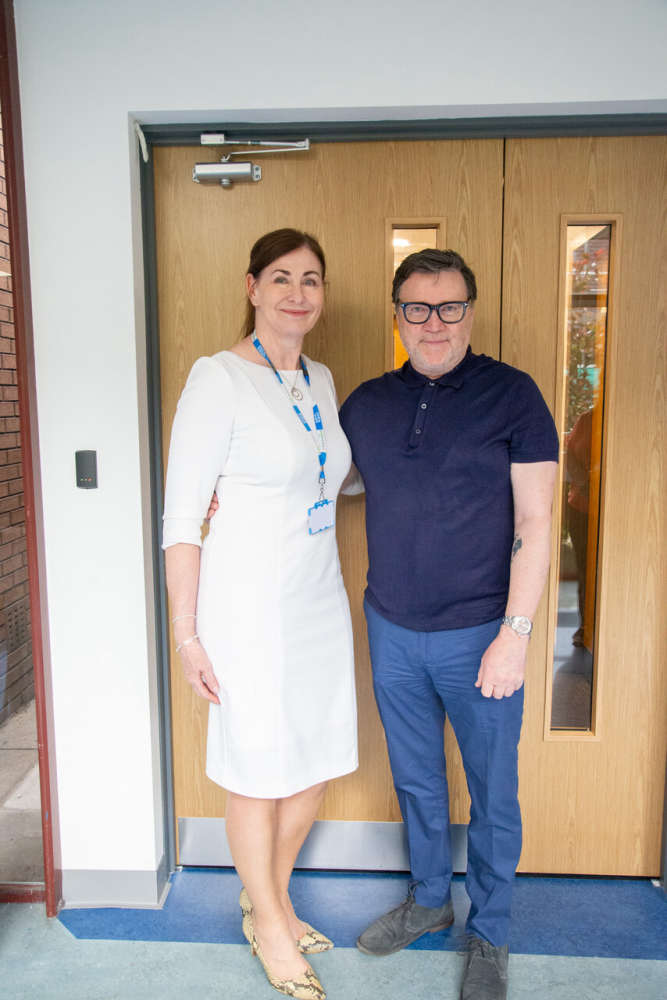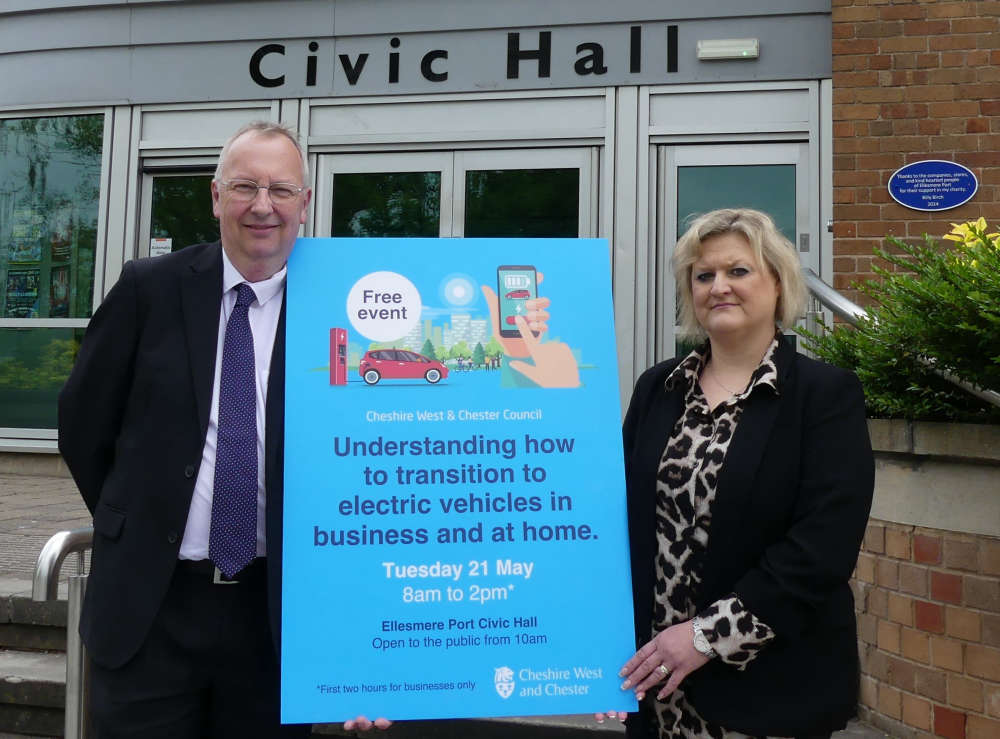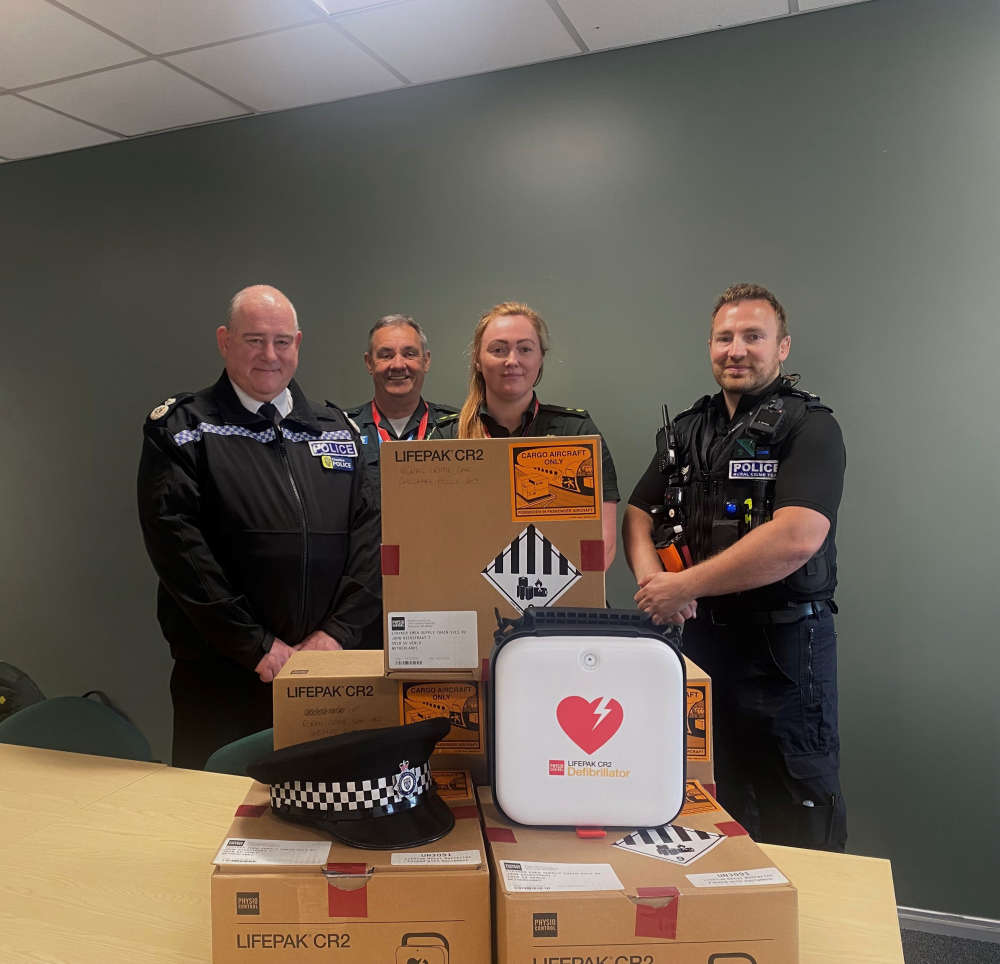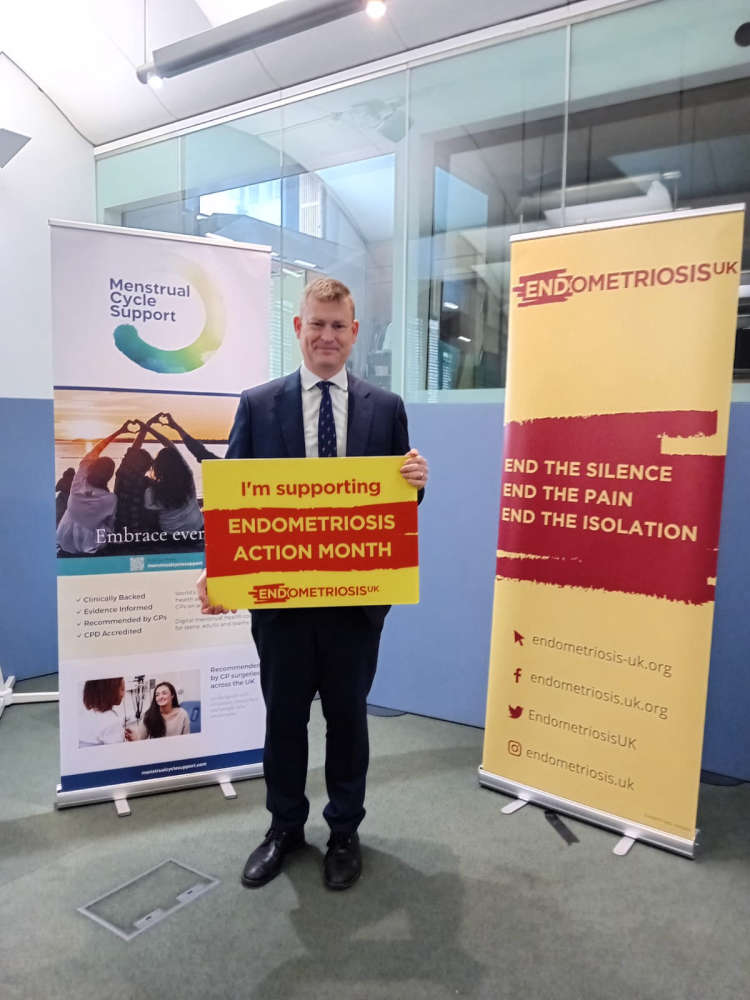
A teenager from Elton shared a moving portrait of life with type 1 diabetes as part of an exhibition on the impact of the condition.
Lucy King, 14, who was diagnosed with type 1 diabetes at just two years old, submitted a drawing which expressed her experiences of living with the condition and the stress and anxiety it can cause.
Lucy, who uses an insulin pump and a blood glucose monitor to help her manage her diabetes said: “I created this piece of work to show how I feel on a bad day. I worry about my insulin pump alarming when I’m in school because I get looked at and sometimes people say mean things to me. I worry about treating lows in school and giving insulin. One time, my pod failed and made a screaming noise. I ran from the class as fast as I could. Sometimes I just want to block out all the noise and the alarms, this is why I painted a girl covering her ears.”
Lucy’s mum, Amy King, shared the family’s pride in their daughter’s achievements. She adds: “We’re incredibly proud of Lucy and the bravery she’s shown in sharing her experiences. She’s always really enjoyed art at school and this was the perfect way for her to express her feelings about diabetes.
“We’ve been lucky in that Lucy has always had great support from her diabetes team. It’s so important that anyone living with diabetes gets the right care and support, especially when they’re finding in hard to live with the condition.”
Lucy’s drawing went on display in the House of Commons on 20 April 2022 to coincide with the launch of a report from Diabetes UK highlighting devastating delays in care for people living with diabetes. Launched as part of the charity’s Diabetes is Serious campaign, the report- Recovering Diabetes Care: Preventing the Mounting Crisis- shows the scale of the problem and sets out a series of calls to the UK Government to tackle it.
Lucy adds: “Having to manage diabetes can make you feel different to everyone else, especially when you have leave class to take your insulin or have sweets in class to treat a hypo. Sometimes other pupils think I am lying to get out of class or ask why you get to have sweets and they don’t.
“At times like that you just want it all to go away. But if you look closely, at my drawing, you will see a splash of yellow in the pencil, which represents brighter, happier times. They always come round again, especially if you have the right support.”
Clare Howarth, Head of the North of England said: “We don’t often hear about the difficulties that come with diabetes, we try and focus on the fact that it doesn’t have to limit us in life but it’s really important to acknowledge how hard it can be. We’ve been incredibly moved by Lucy’s artwork and the bravery she’s shown in talking about the struggles that can come with diabetes.
“As well as resonating with so many people living with the condition and hopefully breaking some of the stigma associated with diabetes, it also shines a light on why it’s so important for people with diabetes to get the care and support that they deserve. A huge well done to Lucy and thank you for such a beautiful and moving contribution.”
Justin Madders MP for Ellesmere Port and Neston, who attended the launch of Diabetes UK’s report in Parliament added: “It was with great pride that I got to see Lucy’s moving artwork in Parliament at the launch of Diabetes UK’s report into diabetes care. Lucy’s powerful words, describing the impact of diabetes on those living with the condition, demonstrate why it’s so important that people living with the condition get the care and support that they deserve. This is why I’m support Diabetes UK’s call for a fully funded, post pandemic recovery plan for diabetes care.”
To view the exhibition and to find out more about the Diabetes is Serious campaign head to:
www.diabetes.org.uk/diabetesisserious
About Diabetes UK:
1. Diabetes UK’s aim is creating a world where diabetes can do no harm. Diabetes is the most devastating and fastest growing health crisis of our time, affecting more people than any other serious health condition in the UK - more than dementia and cancer combined. There is currently no known cure for any type of diabetes. With the right treatment, knowledge and support people living with diabetes can lead a long, full and healthy life. For more information about diabetes and the charity’s work, visit:
2. Diabetes is a condition where there is too much glucose in the blood because the body cannot use it properly. If not managed well, both type 1 and type 2 diabetes can lead to devastating complications. Diabetes is one of the leading causes of preventable sight loss in people of working age in the UK and is a major cause of lower limb amputation, kidney failure and stroke.
3. People with type 1 diabetes cannot produce insulin. About 8 per cent of people with diabetes have type 1. No one knows exactly what causes it, but it’s not to do with being overweight and it isn’t currently preventable. It’s the most common type of diabetes in children and young adults, starting suddenly and getting worse quickly. Type 1 diabetes is treated by daily insulin doses – taken either by injections or via an insulin pump. It is also recommended to follow a healthy diet and take regular physical activity.
4. People with type 2 diabetes don’t produce enough insulin or the insulin they produce doesn’t work properly (known as insulin resistance). Around 90 per cent of people with diabetes have type 2. They might get type 2 diabetes because of their family history, age and ethnic background puts them at increased risk. They are also more likely to get type 2 diabetes if they are overweight. It starts gradually, usually later in life, and it can be years before they realise they have it. Type 2 diabetes is treated with a healthy diet and increased physical activity. In addition, tablets and/or insulin can be required.
5. About 2 per cent of people have other types of diabetes. Other types include 11 different forms of monogenic diabetes, cystic fibrosis related diabetes and diabetes caused by rare syndromes. Certain medication such as steroids and antipsychotics, surgery or hormonal imbalances could also lead to other types of diabetes.
For more information on reporting on diabetes, download our journalists’ guide:
Diabetes in the News: A Guide for Journalists on Reporting on Diabetes
Pictured - Lucy King.

 Foster Wales Flintshire is calling on people to consider becoming foster carers
Foster Wales Flintshire is calling on people to consider becoming foster carers
 Cheshire West and Chester Council secures funding to decarbonise council housing
Cheshire West and Chester Council secures funding to decarbonise council housing
 Air quality improvements could see end of air quality management areas in Ellesmere Port and Frodsham
Air quality improvements could see end of air quality management areas in Ellesmere Port and Frodsham
 Protecting people from the sun
Protecting people from the sun
 Come and speak to North Wales Police
Come and speak to North Wales Police
 Supporting people on their journey to employment
Supporting people on their journey to employment
 Ian Puleston-Davies opens new staff wellbeing hub at Countess of Chester Hospital NHS Foundation Trust
Ian Puleston-Davies opens new staff wellbeing hub at Countess of Chester Hospital NHS Foundation Trust
 One week to the Council’s event to help you switch to electric vehicles
One week to the Council’s event to help you switch to electric vehicles
 Rural Crime Team equipped with mobile defibrillators
Rural Crime Team equipped with mobile defibrillators
 New online hub for the Dee Estuary
New online hub for the Dee Estuary
 Chester and Wirral Football League - Latest Results
Chester and Wirral Football League - Latest Results
 Is being a wholetime firefighter the job for you?
Is being a wholetime firefighter the job for you?
 RISING YOUNG MUSICAL THEATRE STAR SET TO JOIN CHESTER CHOIR AS SPECIAL GUEST
RISING YOUNG MUSICAL THEATRE STAR SET TO JOIN CHESTER CHOIR AS SPECIAL GUEST
 CHESHIRE WOMEN’S CRICKET LEAGUE - LATEST RESULTS
CHESHIRE WOMEN’S CRICKET LEAGUE - LATEST RESULTS
 Local MP has pledged support for those suffering with endometriosis
Local MP has pledged support for those suffering with endometriosis
 Make History: Build a Future Free From Homelessness
Make History: Build a Future Free From Homelessness
Comments
Add a comment